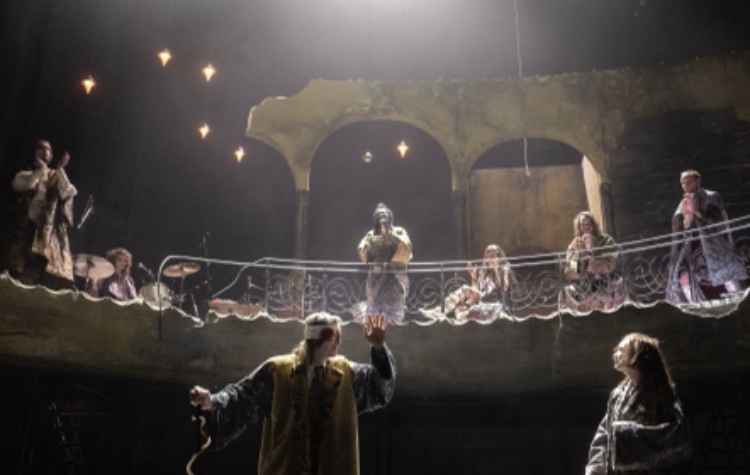We could have turned back.
The production of Eure Paläste sind leer (Your Palaces Are Empty) marks the first time a play by award-winning Austrian dramatist Thomas Köck premieres at a Munich theatre. The only dramatist to win the important Mühlheimer Dramatikpreis twice in a row, in 2018 and 2019, Köck focuses on choric theatre, his dramas resemble musical compositions and are written as continuous texts without punctuation. Eure Paläste sind leer (all we ever wanted) is his first collaboration with director Jan-Christoph Gockel, and the beginning of a long-term relationship with the Münchner Kammerspiele.









